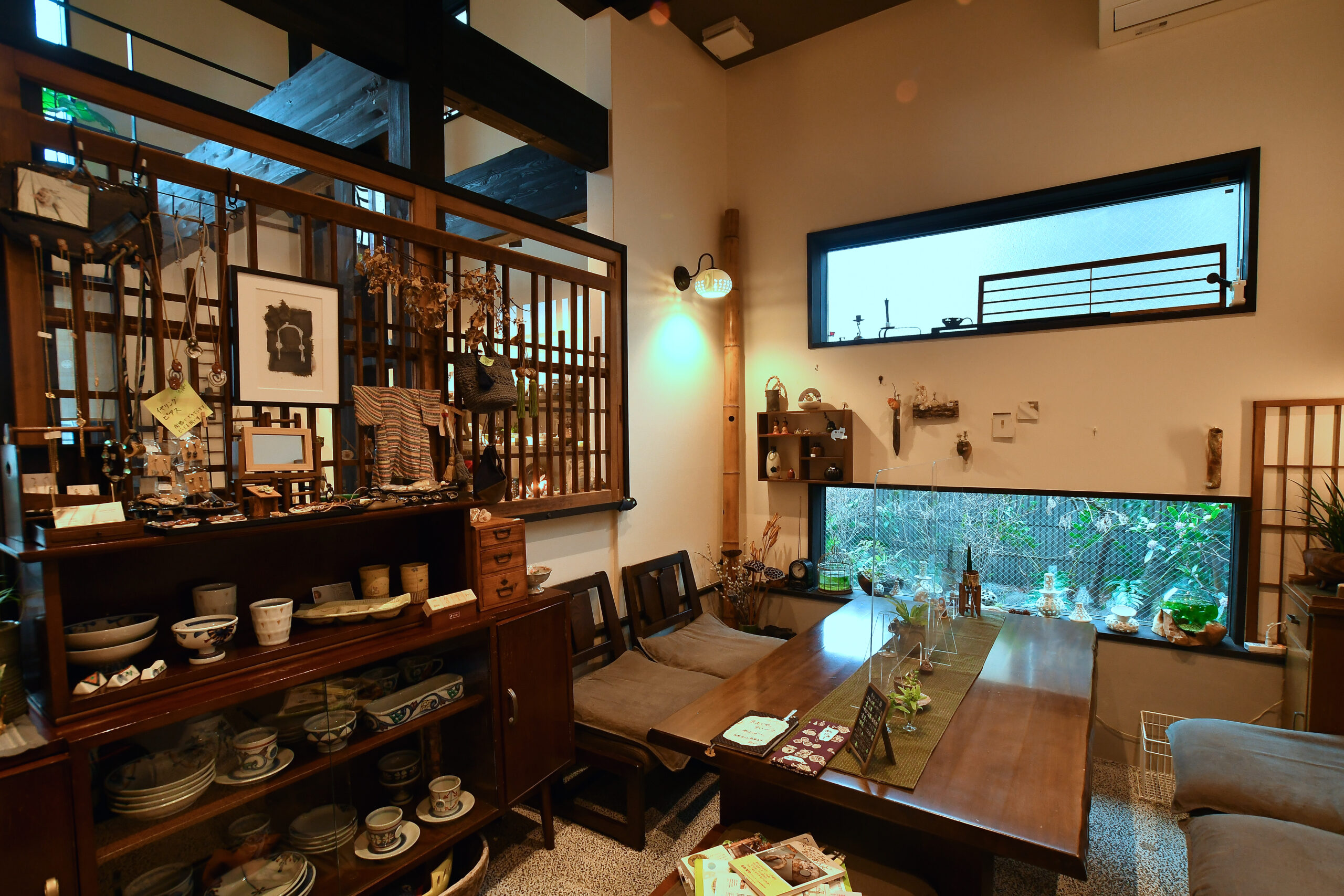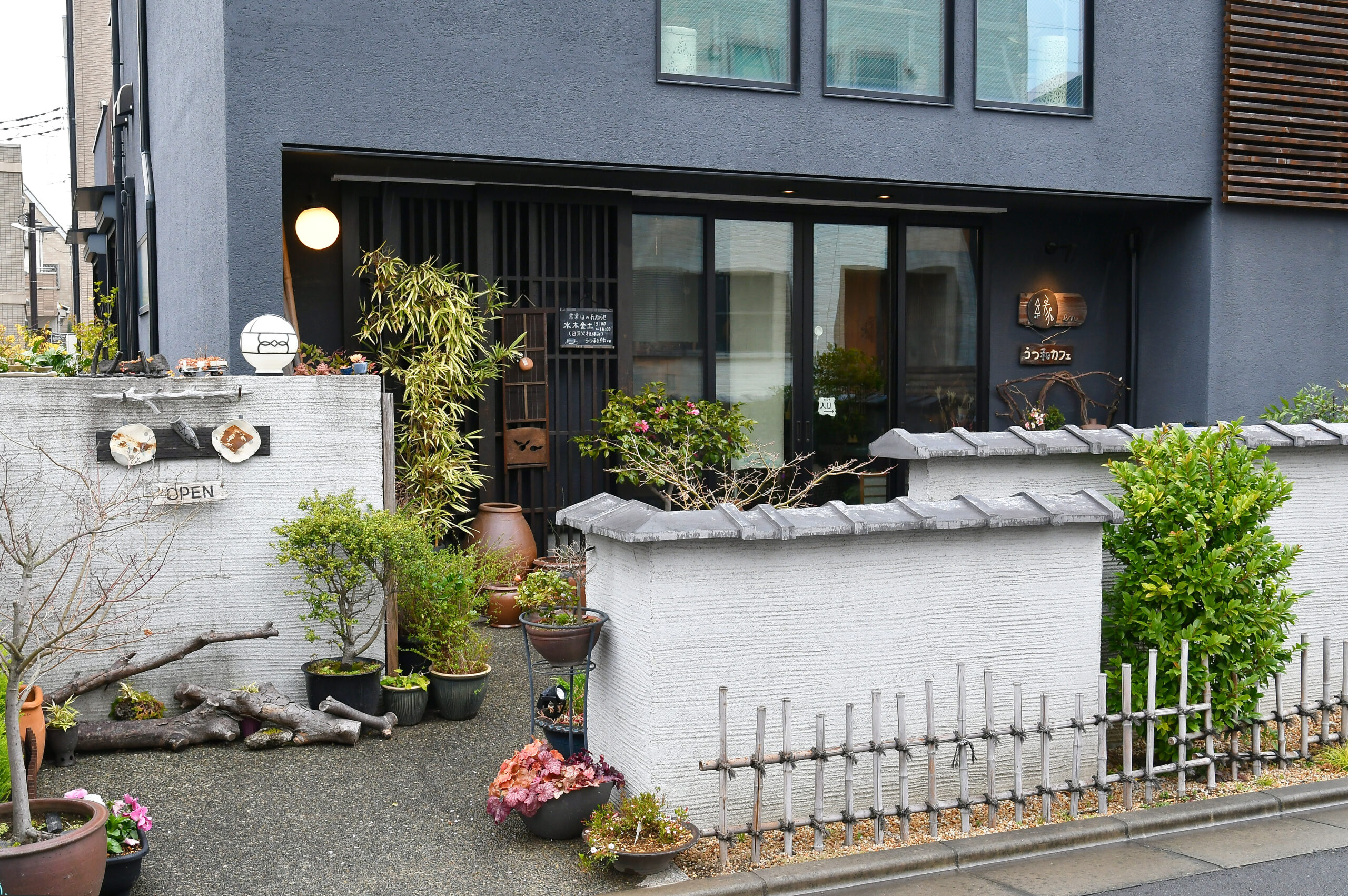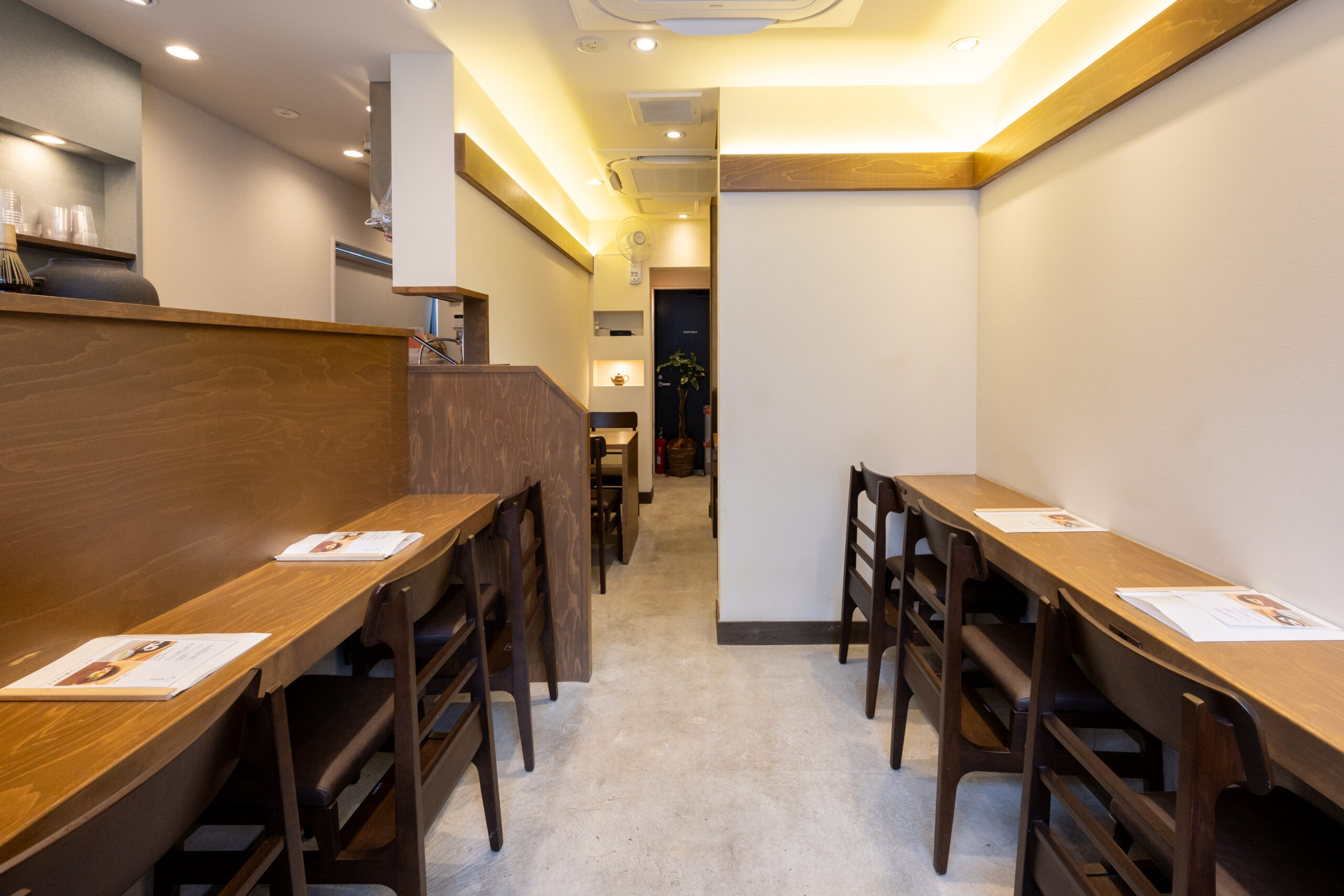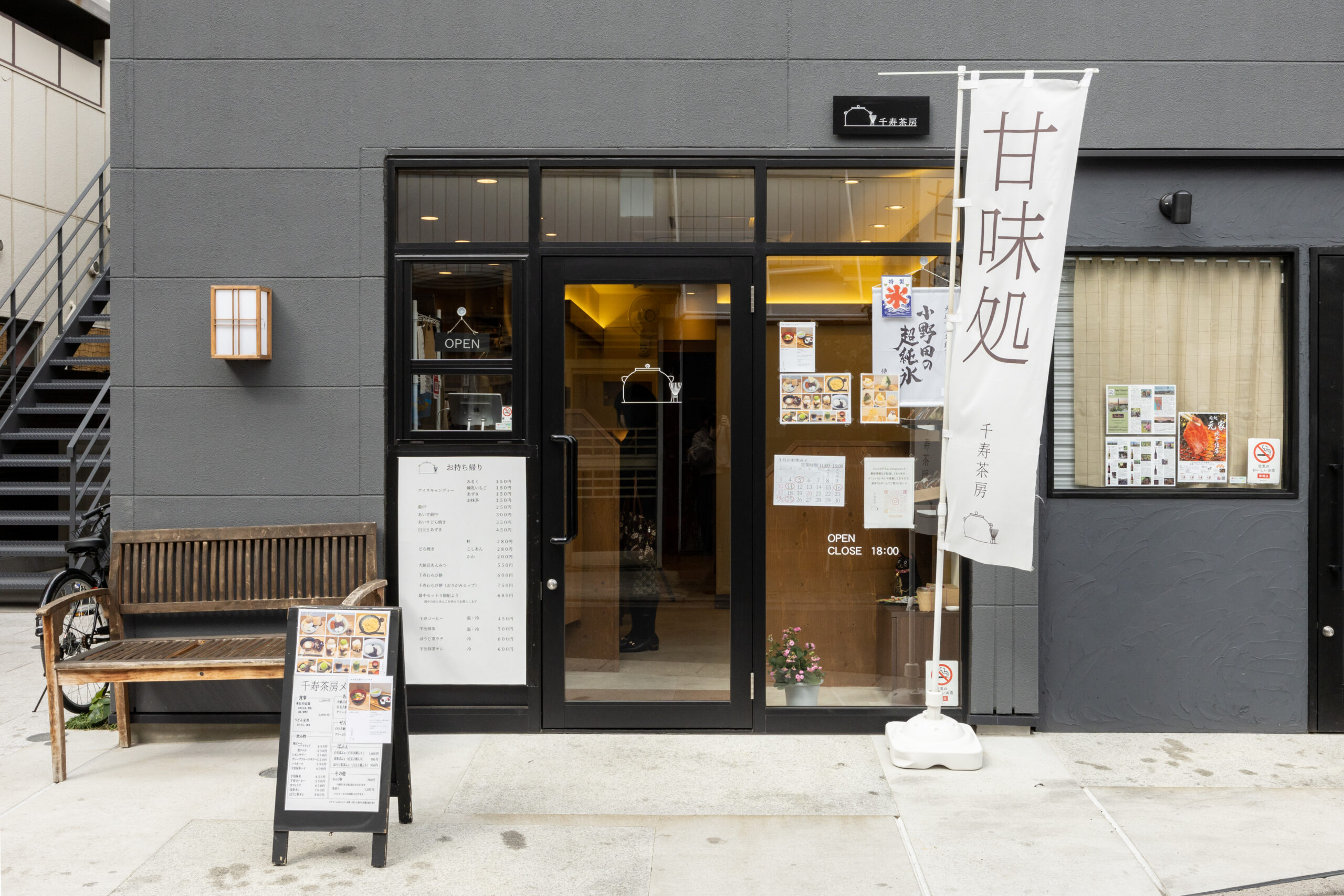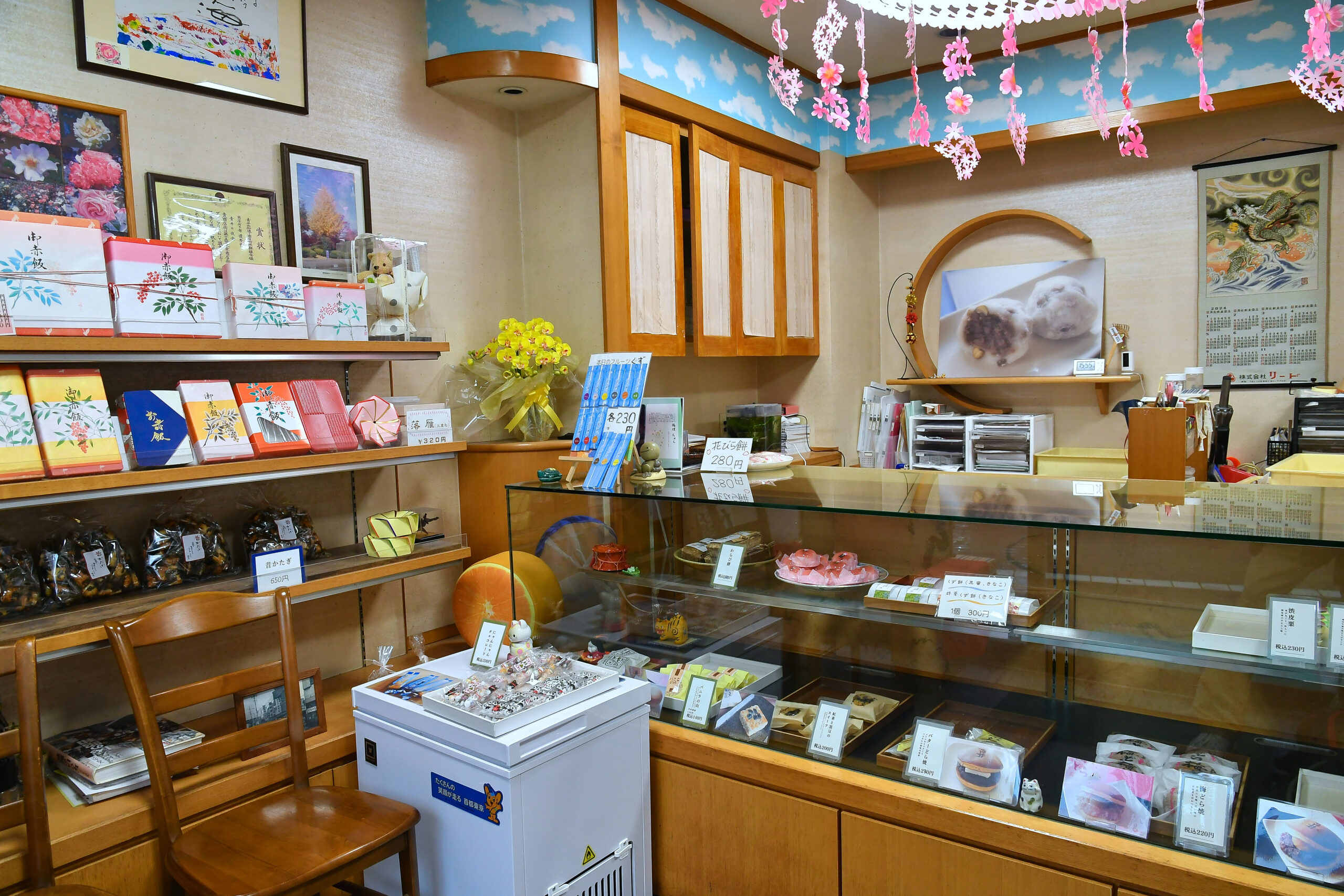- home
- Recommendations
- Enjoy seasonal dishes and warm meals! Japanese sweets to enjoy in spring
Enjoy seasonal dishes and warm meals! Japanese sweets to enjoy in spring
 April 10, 2024
April 10, 2024
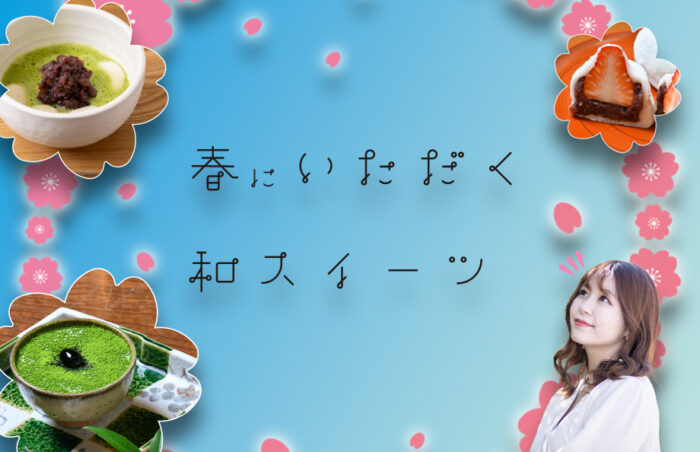
Sweets made with healthy Japanese ingredients will soothe your tongue and your soul with every bite. We will introduce you to some Japanese sweets you'll want to try this spring, including seasonal items and menus that will warm your body.
[Shops introduced in this article]
Utsuwa Cafe En
This is a cafe where you can enjoy Japanese tea and Japanese sweets in a Japanese space surrounded by pottery. The owner, Midori Hyodo, who is also a potter, opened the cafe in 2016 with the hope that customers would enjoy a relaxing time, with the main focus being on the gallery. The "Owner's Whimsical Sweets," which always have 7 or 8 varieties on offer, are originals that use the classic bean paste and cream cheese, as well as fuki miso, plum, and seasonal vegetables, and are combined with biscuits and mochi wrappers, creating an adult taste that makes the most of the natural flavors of the ingredients. You can choose from a wide variety of Japanese tea leaves and tea producing areas. If you want to focus on tea, try the "Exquisite Ureshino Tea Course" (600 yen). You can enjoy the difference in taste of the finest tea from Ureshino, Saga Prefecture, up to the third infusion, and finally enjoy the tea leaves with bean paste and ponzu sauce, which is a very popular idea.
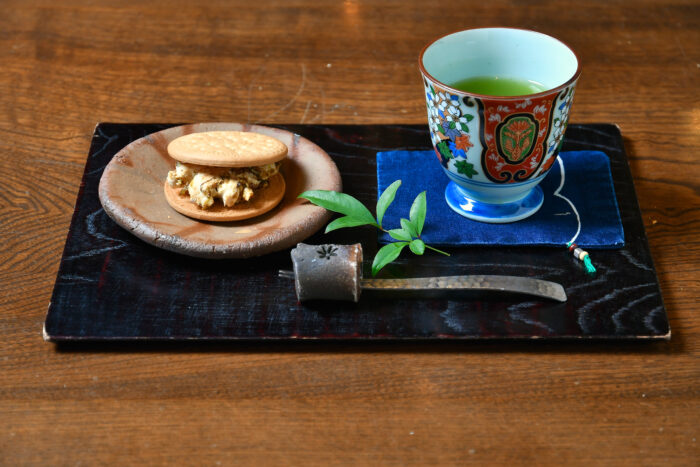
The bittersweetness of the fuki miso and cream cheese go perfectly together. It is served with Shiraori tea from Ureshino, which has an excellent balance of sweetness and aroma. Another enjoyable thing about this restaurant is that it is served on Bizen ware plates and other dishes made by ceramic artists.
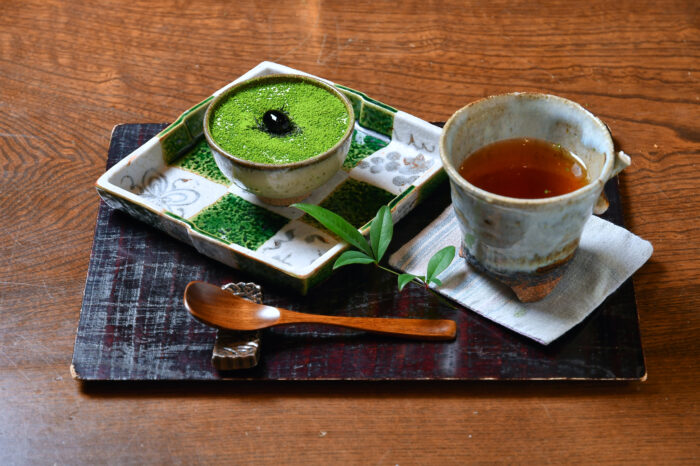
A smooth and fragrant Japanese tiramisu finished with matcha and topped with Ureshino Premium Tea leaves and black beans. It goes well with the refreshing flavor and sweetness of Japanese black tea. Tiramisu must be reserved at least one day in advance.
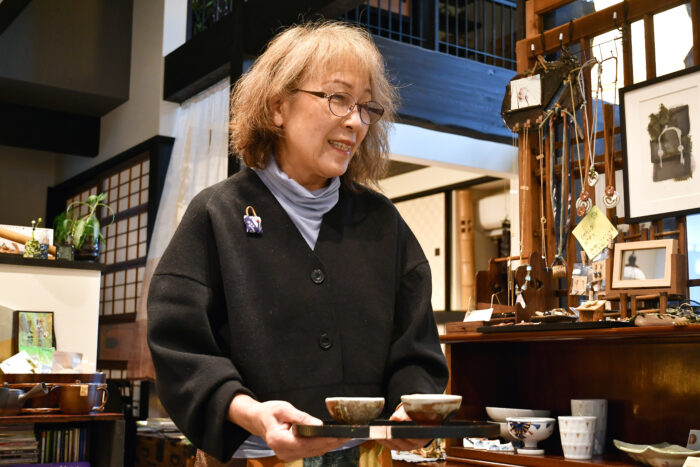
"Please ask us about your favorite flavor of Japanese tea and how it goes with sweets," says Hyodo. He is also busy developing new flavors, such as sweets made with matcha and amazake.
[Exterior / Interior]
【Shop information 】
■Utsuwa Cafe En
電 話:090-3091-5569
Business hours: 13:00-16:00
Closed: Mondays, Tuesdays, Sundays, and public holidays *Closed from May 1st to 31st, 2024
Seats: 5 seats
Address: 3-8-50 Rokucho, Adachi-ku
Reservation: Enabled
Takeout Reservation: Not available
Barrier-free support: Negotiable
Wi-Fi: None
Access: 10 minutes on foot from Rokucho Station on the Tsukuba Express
Senjyu Sabo
This is a sweet shop that opened in June 2023. The owner, Akira Abo, is from Hokusai Sabo, a famous shop in Kinshicho. "Kitasenju attracts a wide range of age groups, but for some reason there are no sweet shops. So I thought I should open one myself," he says. They are particular about their ingredients, such as red beans from Hyogo, brown sugar from Tokunoshima, Kagoshima, and matcha and kinako from Kyoto, and they make bean paste, agar, shiratama, brown sugar, warabi mochi, and kudzu noodles in the shop. Sweet shops mainly serve cold sweets, and the only hot menu item is oshiruko, but here they offer three types of "zenzai" that combine matcha and cream, as well as "inaka shiruko" hot and cold, all year round. Matcha and roasted green tea drinks made with mellow water boiled in a tea kettle, and coffee are also great menu items for the chilly season.
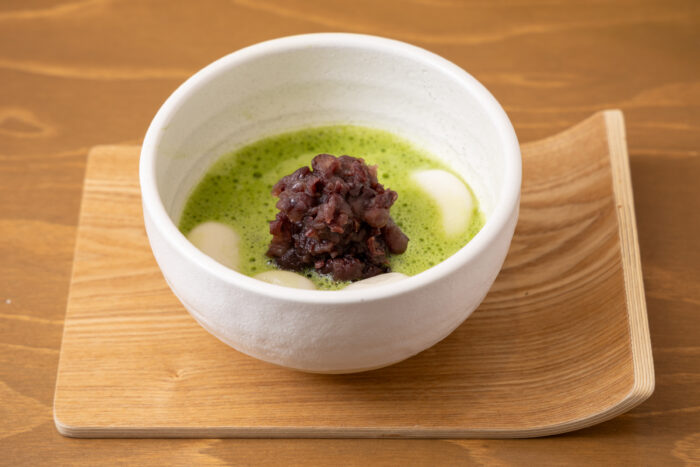
A visually stunning zenzai made by pouring warm matcha over shiratama zenzai. The shiratama are made after an order is placed and have just the right amount of springiness. You can enjoy the deep flavor of the matcha with the bean paste melted into it until the last spoonful.
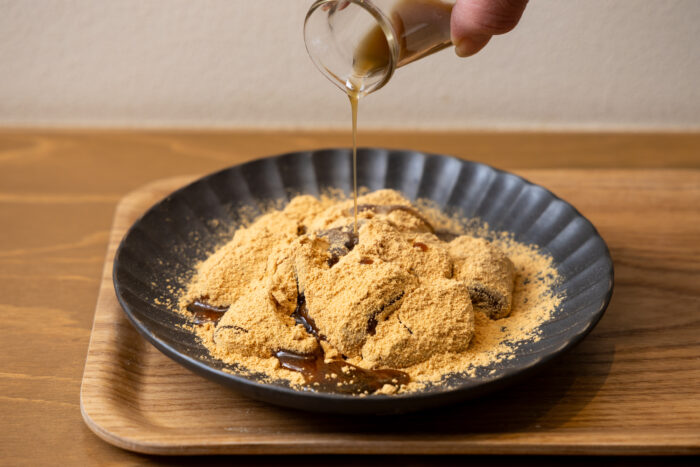
The harmony of the soft and creamy warabi mochi and the fragrant roasted soybean flour is outstanding. Pour in the lightly sweet brown syrup little by little, enjoying the change in flavor as you savor the taste.
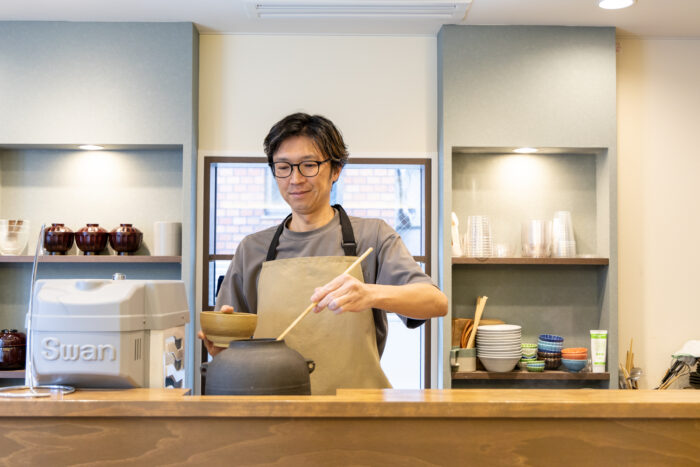
The owner, Mr. Abo, said, "We have customers of all ages, from high school girls to elderly people with their grandchildren."
[Exterior / Interior]
【Shop information】
■ Senjyu Sabo
電 話:03-6812-0937
Business hours: 11:00-18:00
Closed: Mondays
Seats: 13 seats
Address: 2-12 Senju, Adachi-ku, Marufuku Building A, 1F
Reservation: Enabled
Takeout reservation: Enabled
Barrier-free support: Enabled
Wi-Fi: None
Access: 7-min. walk from JR Joban Line and others Kita-Senju West Exit
Website: https://senjusabo.therestaurant.jp/
Instagram:https://www.instagram.com/senjusabo/
Unyukaan Iseya
Founded in 1965, the second-generation owner, Tadashi Fuseta, continues to create new Japanese sweets while continuing the taste of his predecessor. The representative of these is daifuku made with seasonal fruits. Strawberries from winter to early spring, pineapples in summer, and shine muscat and persimmons in autumn are wrapped in soft mochi, providing a fresh taste. Strawberries are filled with tsubuan and pineapples with white bean paste, creating an exquisite combination. Sakura mochi is recommended this time of year, and the "age manju" is fried after receiving an order, and is made with plenty of homemade koshian that is soaked in water many times, giving it a delicious aftertaste. The hand-baked "dorayaki" with a soft skin is also popular, and in addition to the standard, butter + tsubuan and candied plum + white bean paste are also available. Enjoy Japanese sweets that will give you a break at a price you can enjoy on a daily basis.
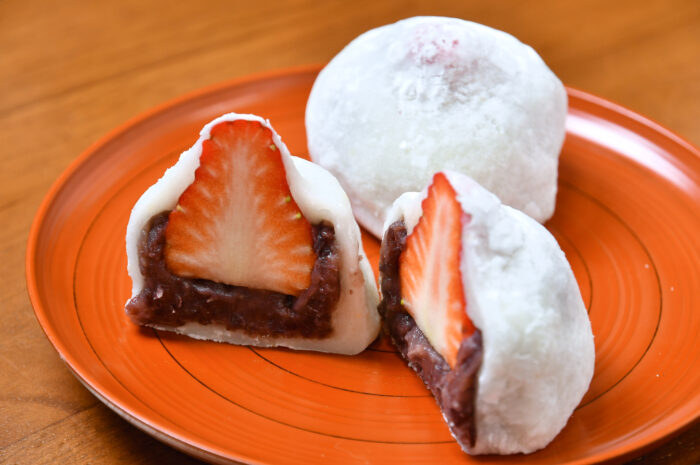
The strawberry daifuku, which uses strawberries such as Tochiotome strawberries and has a sweet and sour aroma and flavor that spreads throughout your mouth, is only available during this season. The daifuku made with frozen domestic Unshu mandarins, which is available all year round, is also a specialty.
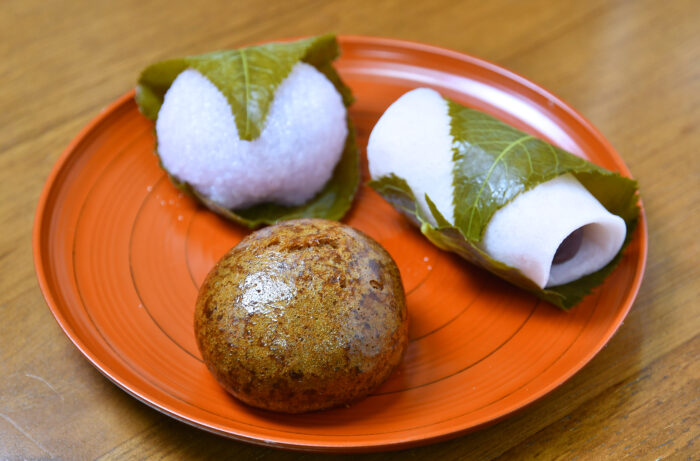
The deep-fried manju, made with brown sugar dough, is served fresh to ensure a crispy texture. The baked skin and Domyoji sakura mochi will be available in store until the cherry blossoms bloom.
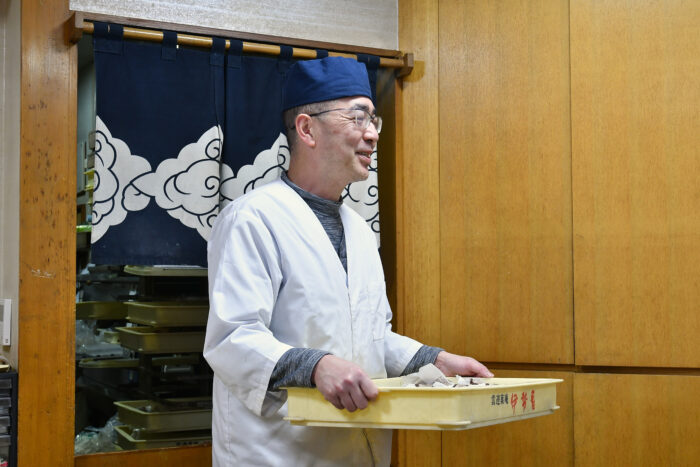
In 1995, the shop was renamed "Unyuukaan" after the successor. "I chose the name based on my favorite character for cloud and playful Japanese sweets," says Fuseta.
[Exterior / Interior]]
【Shop information 】
■ Unyukaan Iseya
電 話:03-3886-3002
Opening hours: 8: 00-19: 00
Closed: Mondays (Tuesdays if Monday is a public holiday)
Address: 3-34-9 Aoi, Adachi-ku
Seats: None
Takeout reservation: Enabled
Barrier-free support: Enabled
Wi-Fi: None
Access: 2 minutes on foot from Aoi Station on the Tsukuba Express
Website: https://www.ensen-ado.com/iseya/
Instagram: https://www.instagram.com/unyukaan_iseya/
(This information is current as of March 18, 2024)
Recommended articles












